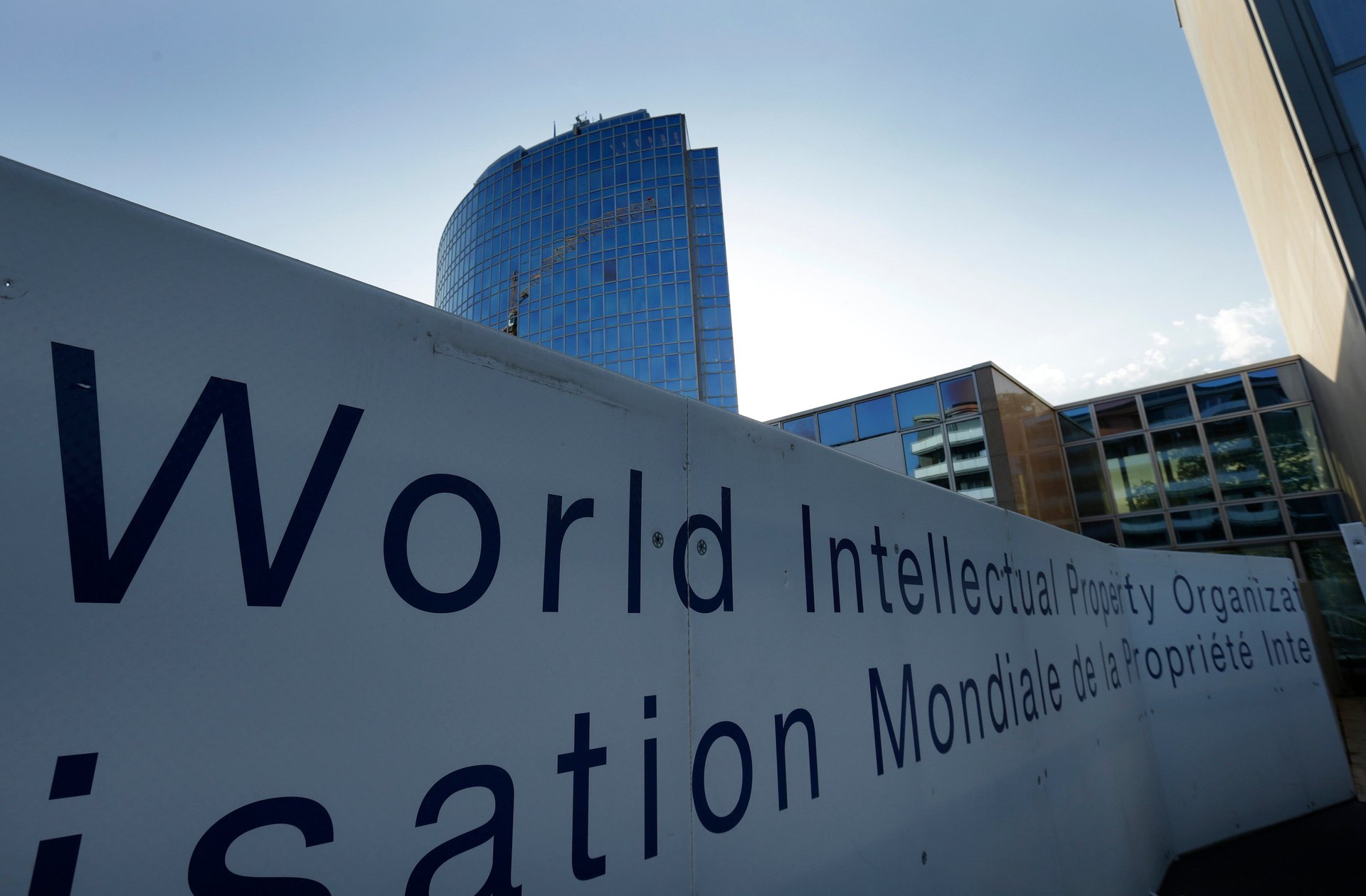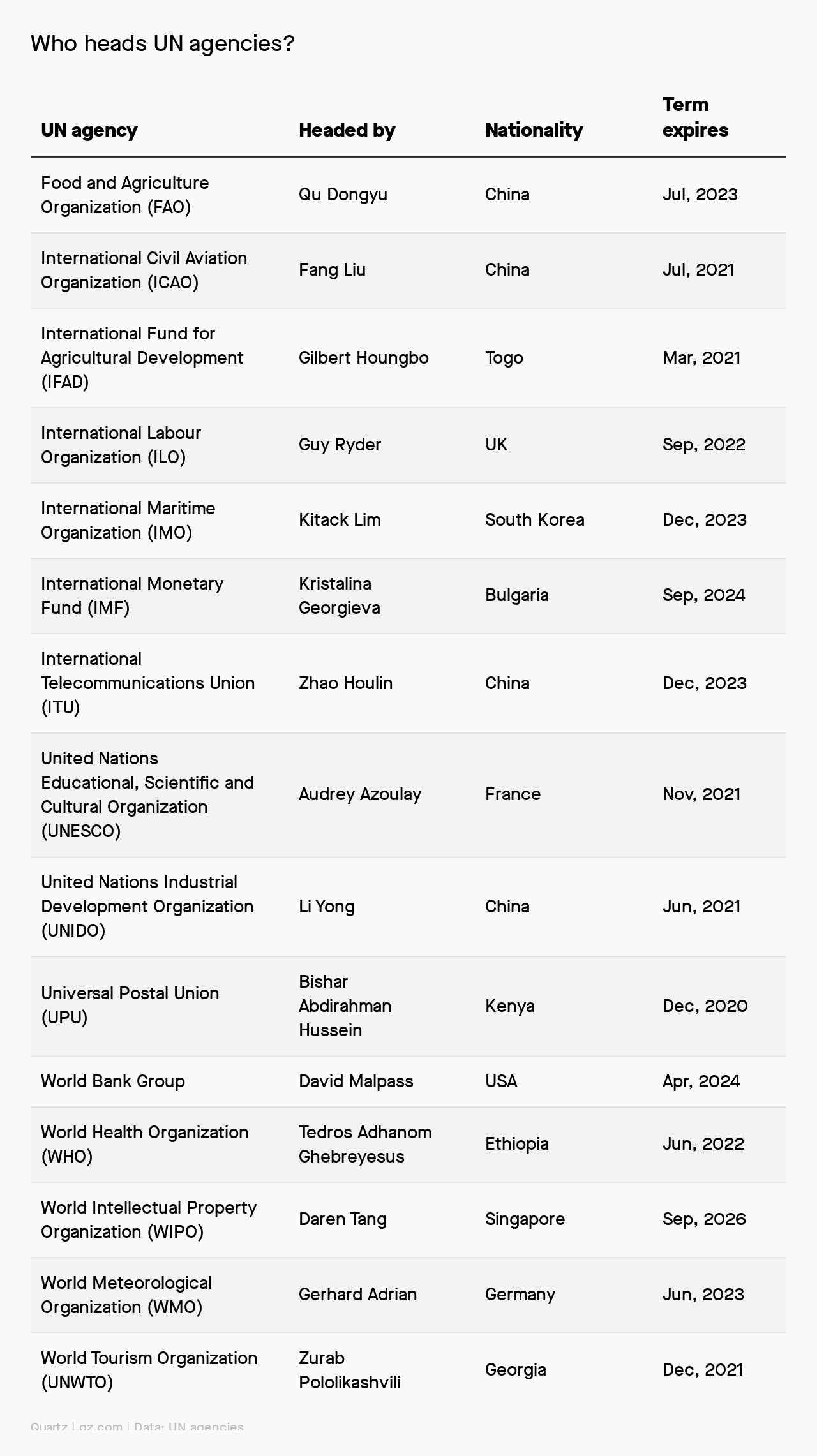The US is relieved that Singapore beat out China’s nominee as the new UN IP agency head
The World Intellectual Property Organisation (WIPO), a United Nations specialized agency that promotes the protection of intellectual property around the world, today nominated Singaporean Daren Tang as its new head, capping months of diplomatic efforts by the US to prevent China’s candidate from winning.


The World Intellectual Property Organisation (WIPO), a United Nations specialized agency that promotes the protection of intellectual property around the world, today nominated Singaporean Daren Tang as its new head, capping months of diplomatic efforts by the US to prevent China’s candidate from winning.
In closed-door voting that took place in Geneva, Tang beat out Wang Binying, the current deputy director general, by 55 to 28 votes to lead the WIPO, a body which oversees global IP rules. Andrew Bremberg, the US ambassador to the United Nations, said that the US was “very pleased with the outcome,” according to Reuters. The US State Department congratulated Tang, describing him as an “effective advocate for protecting intellectual property, a vocal proponent of transparency and institutional integrity.” Tang is currently the chief executive of Singapore’s IP office, and his confirmation for his new WIPO role will take place in May.
In the run-up to the election, US officials had made clear their opposition to the prospect of Chinese leadership of WIPO, amid growing worries about China’s growing clout in international, multilateral organizations. Beijing is now the second largest contributor to the UN’s regular budget and its peacekeeping budget, while the US has scaled back its contributions in recent years.
Speaking with reporters last month, US secretary of state Mike Pompeo implied that such an arrangement would be absurd given that China has “stolen hundreds of millions of dollars of intellectual property” from the US. Former national security advisor John Bolton was more explicit, tweeting, “The ability to to protect intellectual property is gravely threatened” if China won the directorship. China called out the US for politicizing the election. Ted Yoho, a Republican congressman from Florida, likened the prospect of a China-led WIPO to “hiring a thief to guard a bank.”
China had accused the US of trying to block Wang’s bid by pressuring other countries to drop their support for Beijing’s candidacy.
Had Wang won the position, that would have brought the total number of UN agencies under Chinese leadership to five, or one-third of all UN specialized agencies. Specialized agencies are independent international organizations that coordinate their work with the UN through negotiated agreements. They are different from funds and programs like UNICEF and the World Food Programme, which are generally established by a UN General Assembly resolution and financed through voluntary contributions.
China already leads the Food and Agriculture Organization, the International Telecommunications Union, the United Nations Industrial Development Organization, and the International Civil Aviation Organization. The latter has recently been criticized for blocking Twitter users who question its policy of excluding Taiwan from membership.

Tove Graulund, a Denmark-based consultant who has worked with WIPO, said that some member states had discounted Wang solely on the basis of her being a representative of the Chinese state, disregarding her years of experience at WIPO. “Indeed, a lot of progress has been made in her time as deputy director general,” said Graulund.
While losing the WIPO director general position to Singapore is certainly a set back for China, it’s unlikely to stop Beijing from seeking to exert more global influence through multilateral diplomacy.
“China pursues its foreign policy interests and values through the multilateral system, and does this in a number of ways,” said Courtney Fung, assistant professor of international relations at the University of Hong Kong and an associate fellow at London-based think tank Chatham House. “In terms of foreign policy interests, China is pushing various UN agencies to explicitly reference, voice support for, or partner with projects under the Belt and Road Initiative. In terms of values, China emphasises state sovereignty as a principle guiding international politics.”